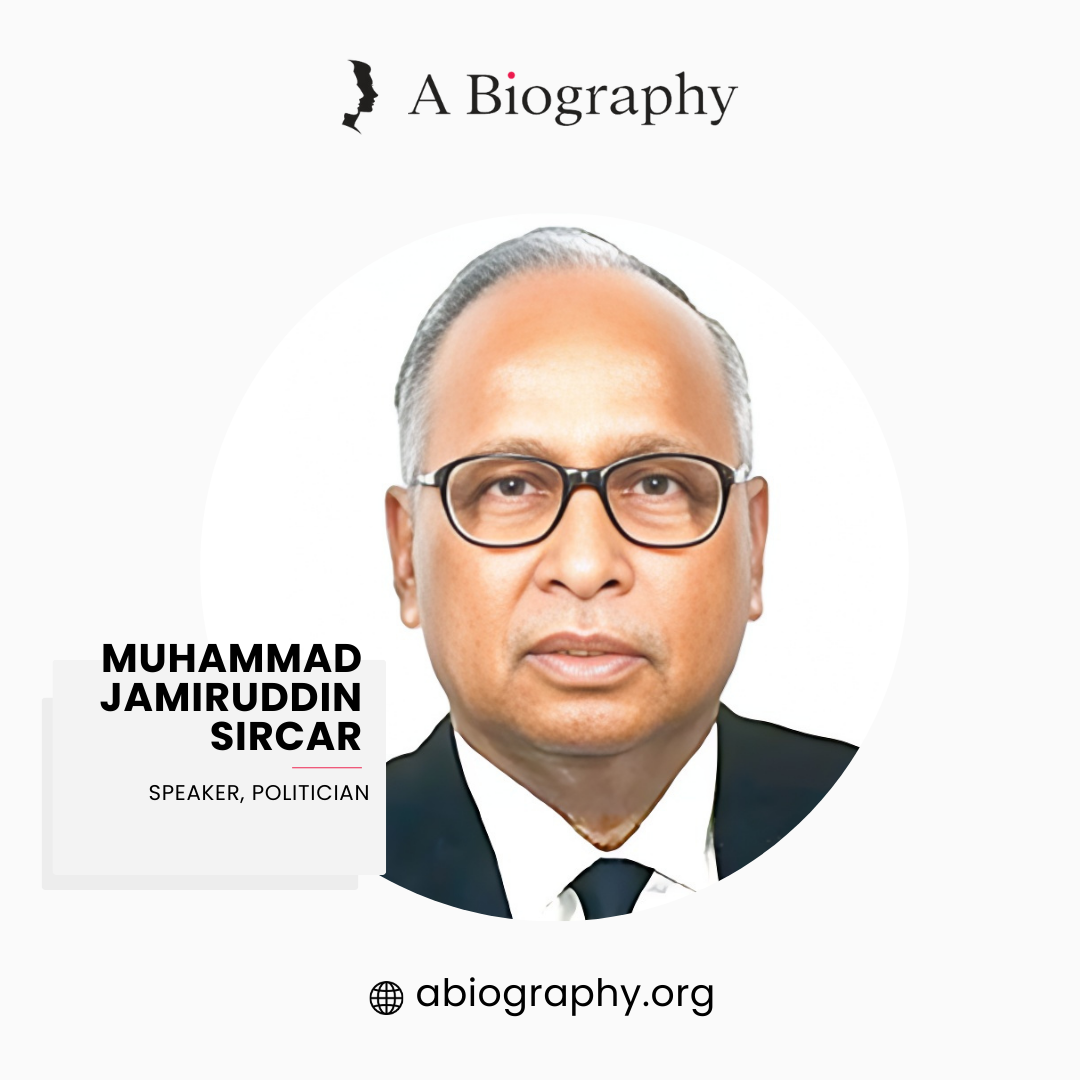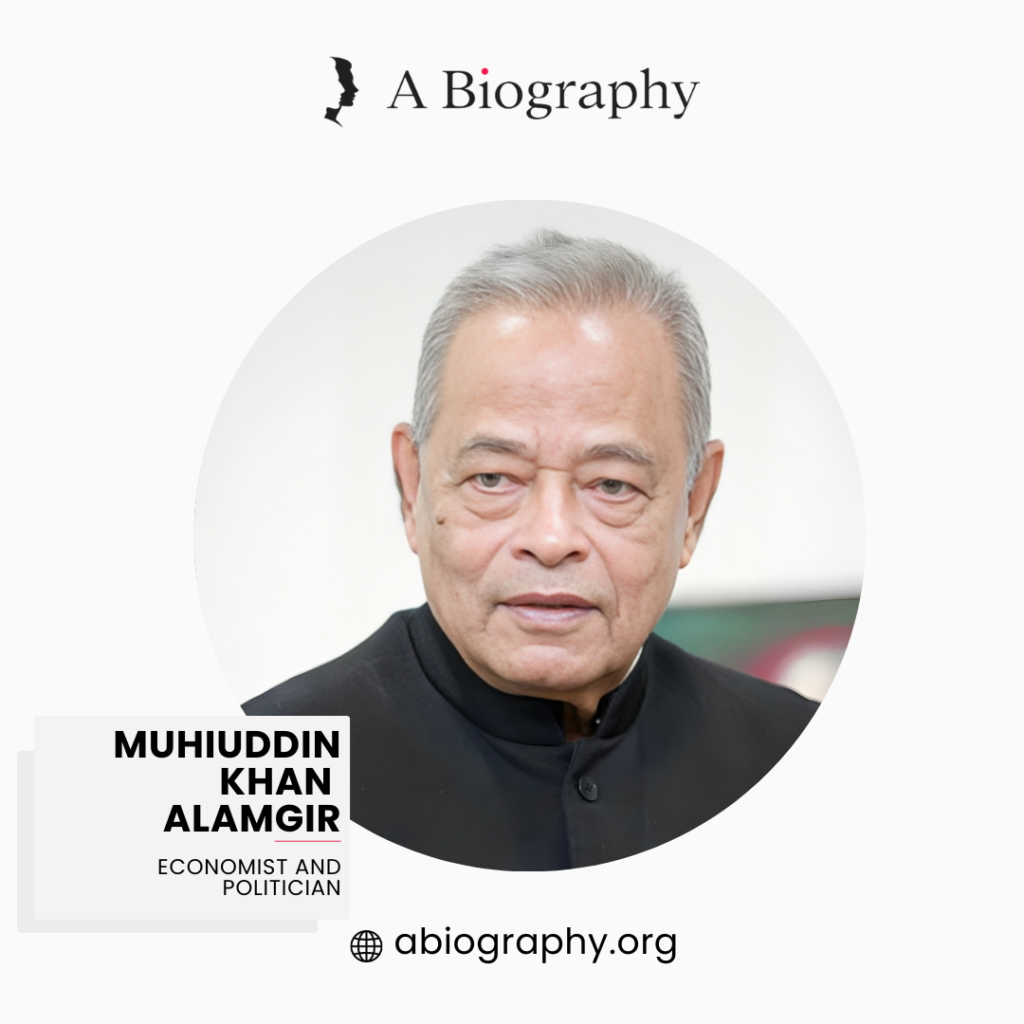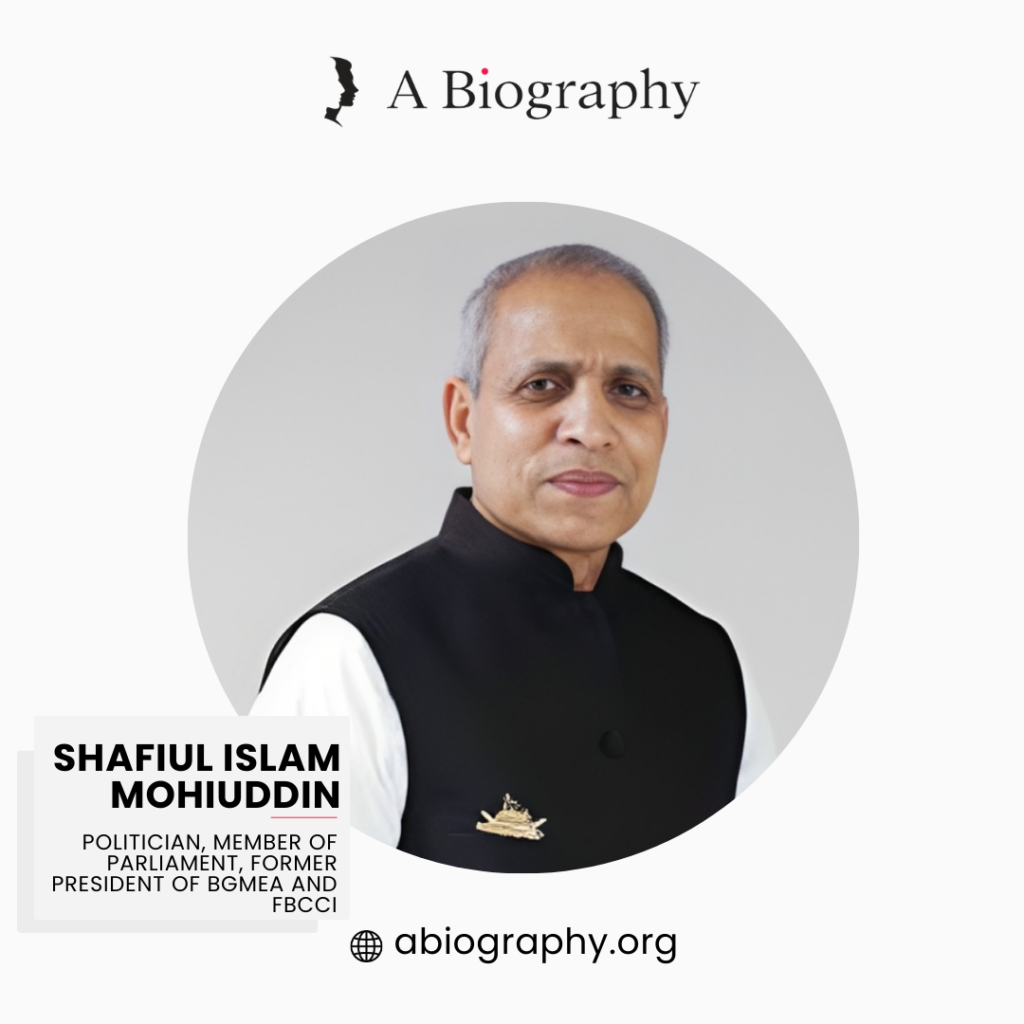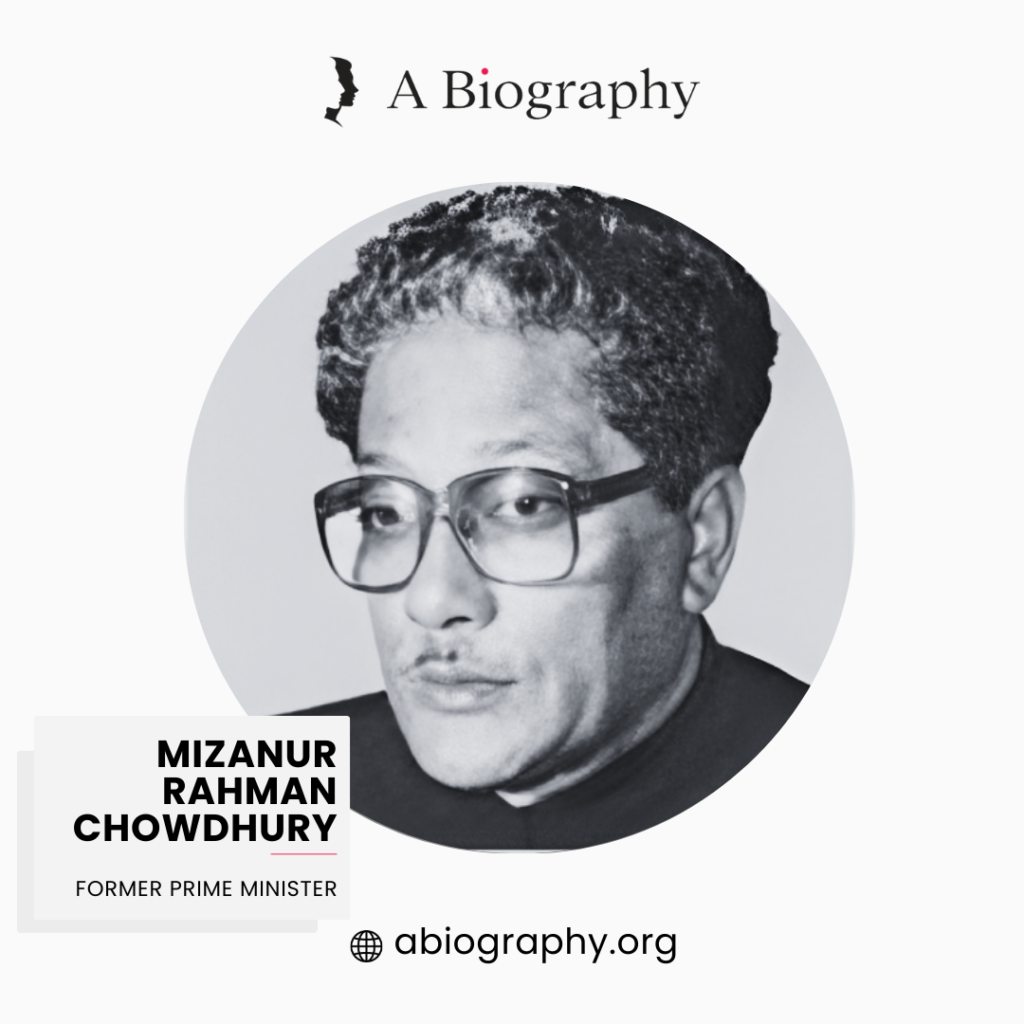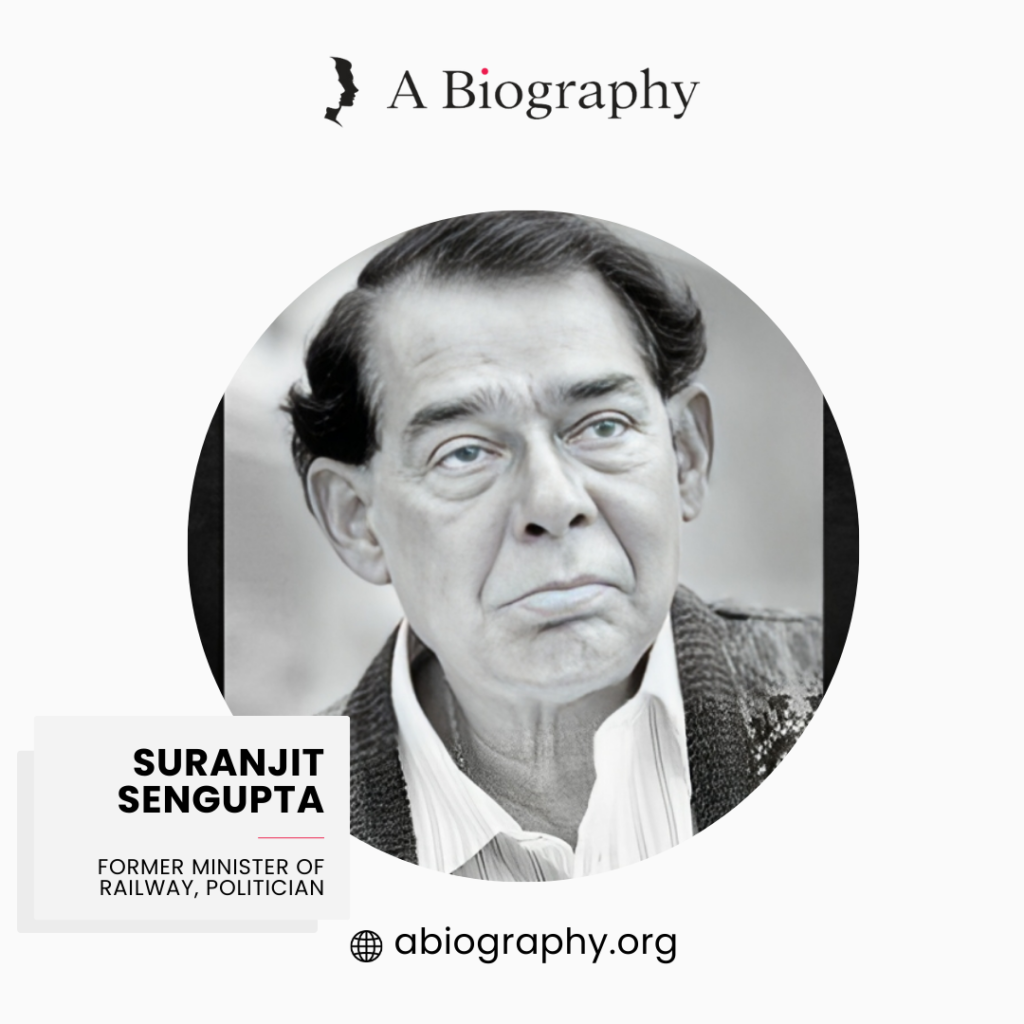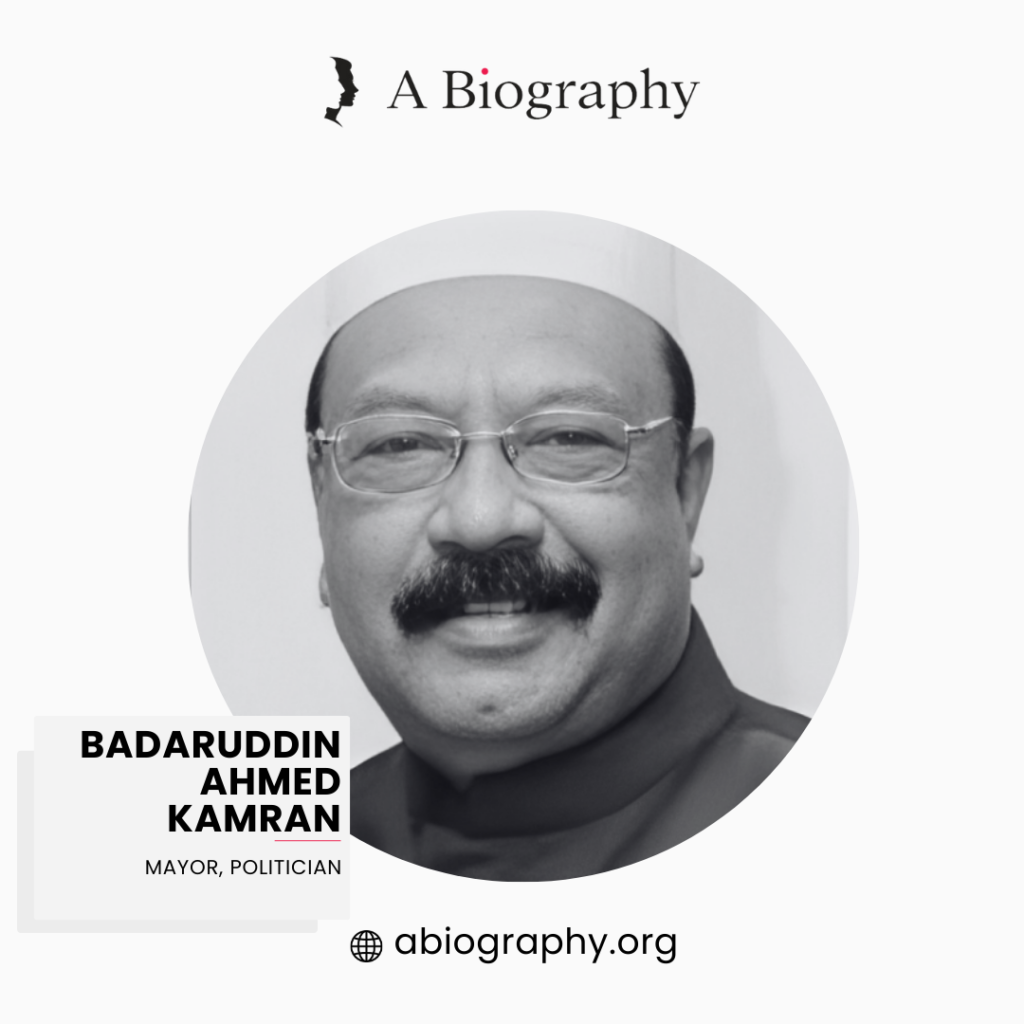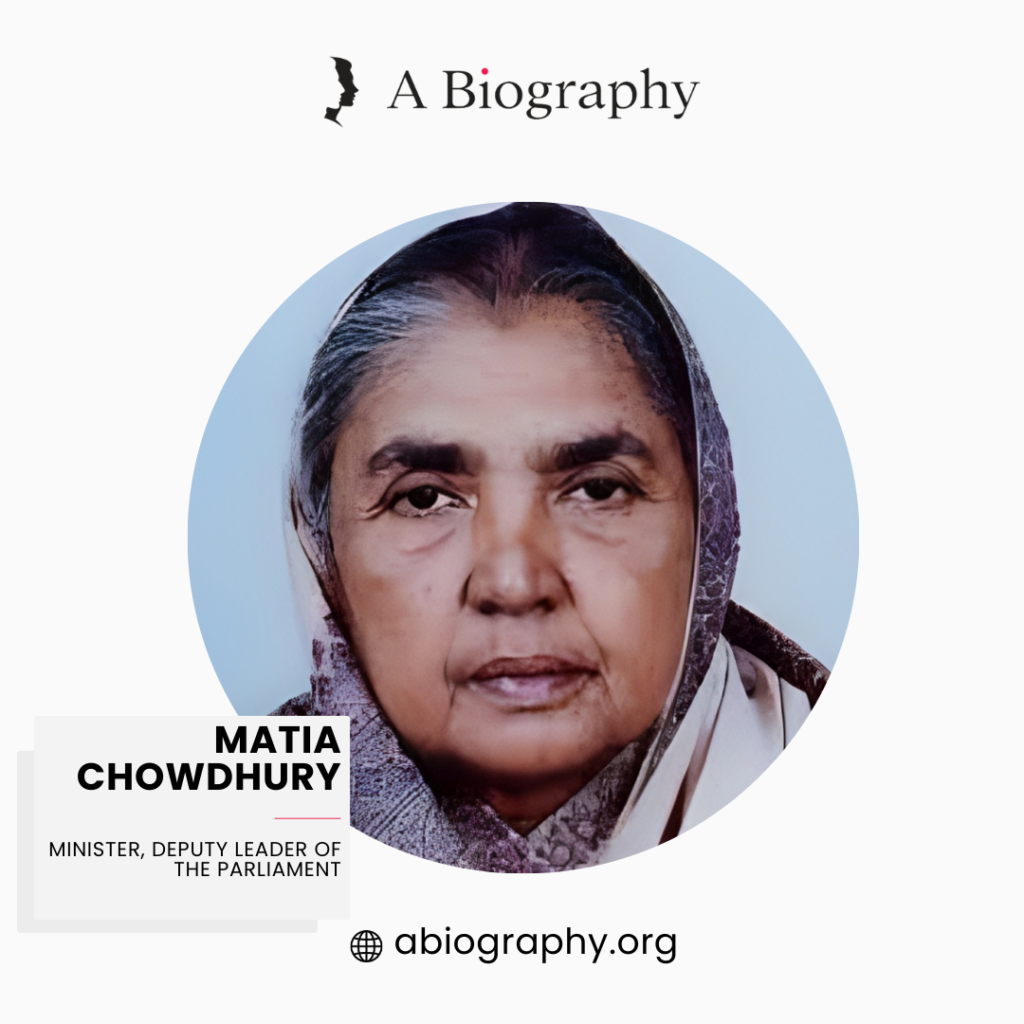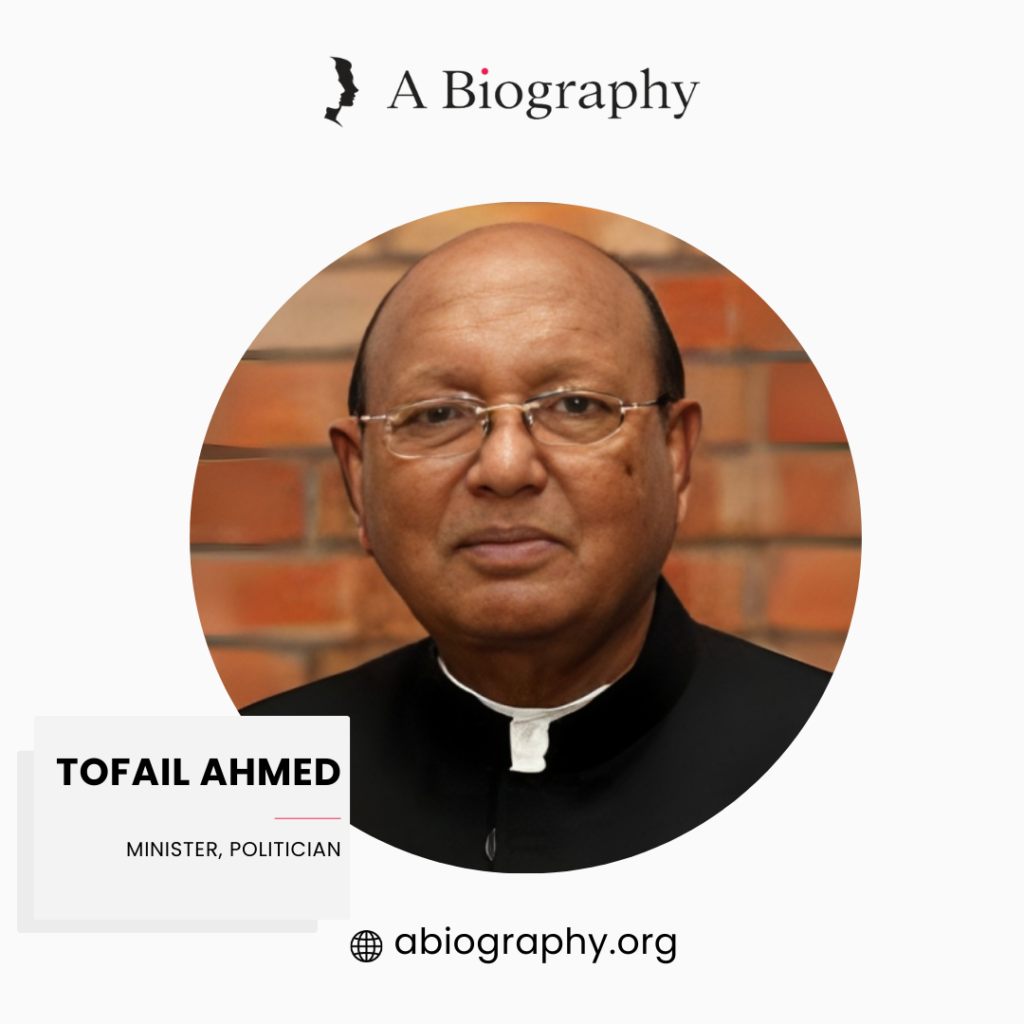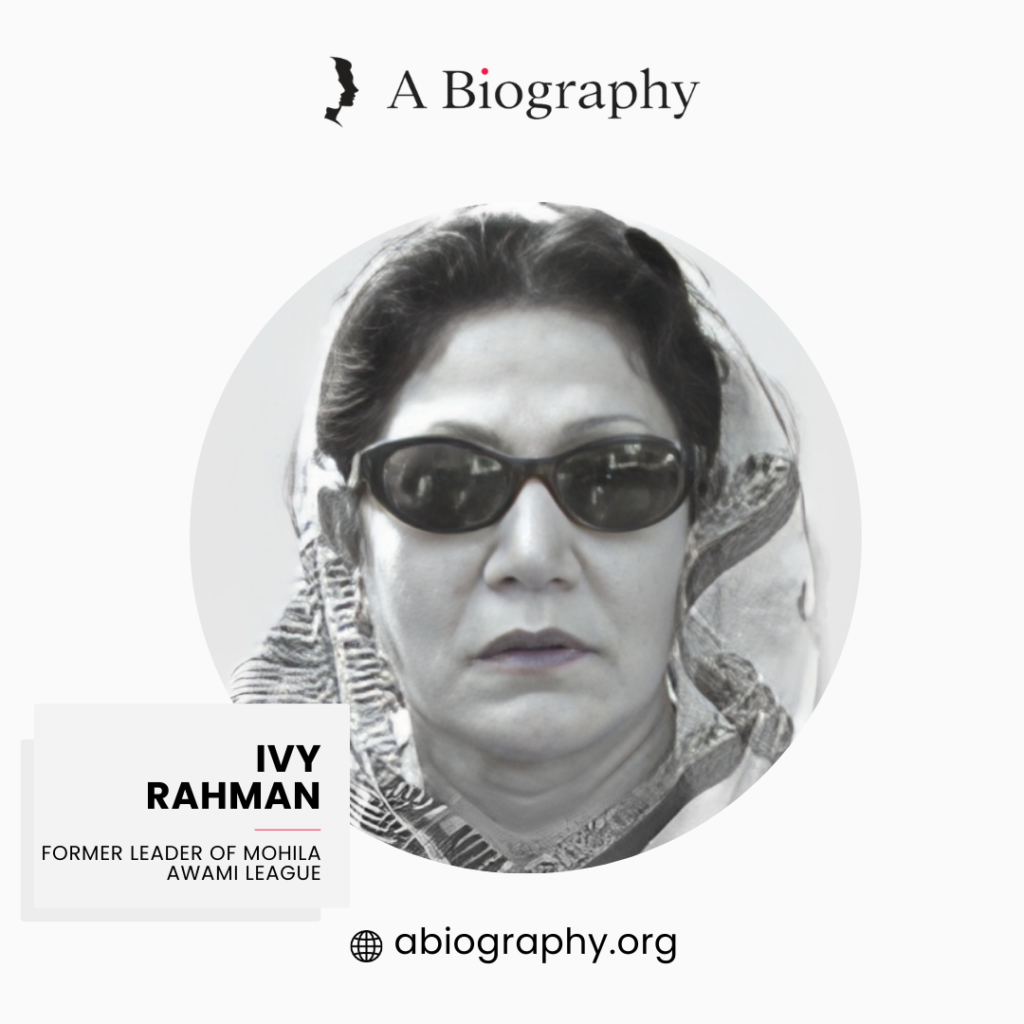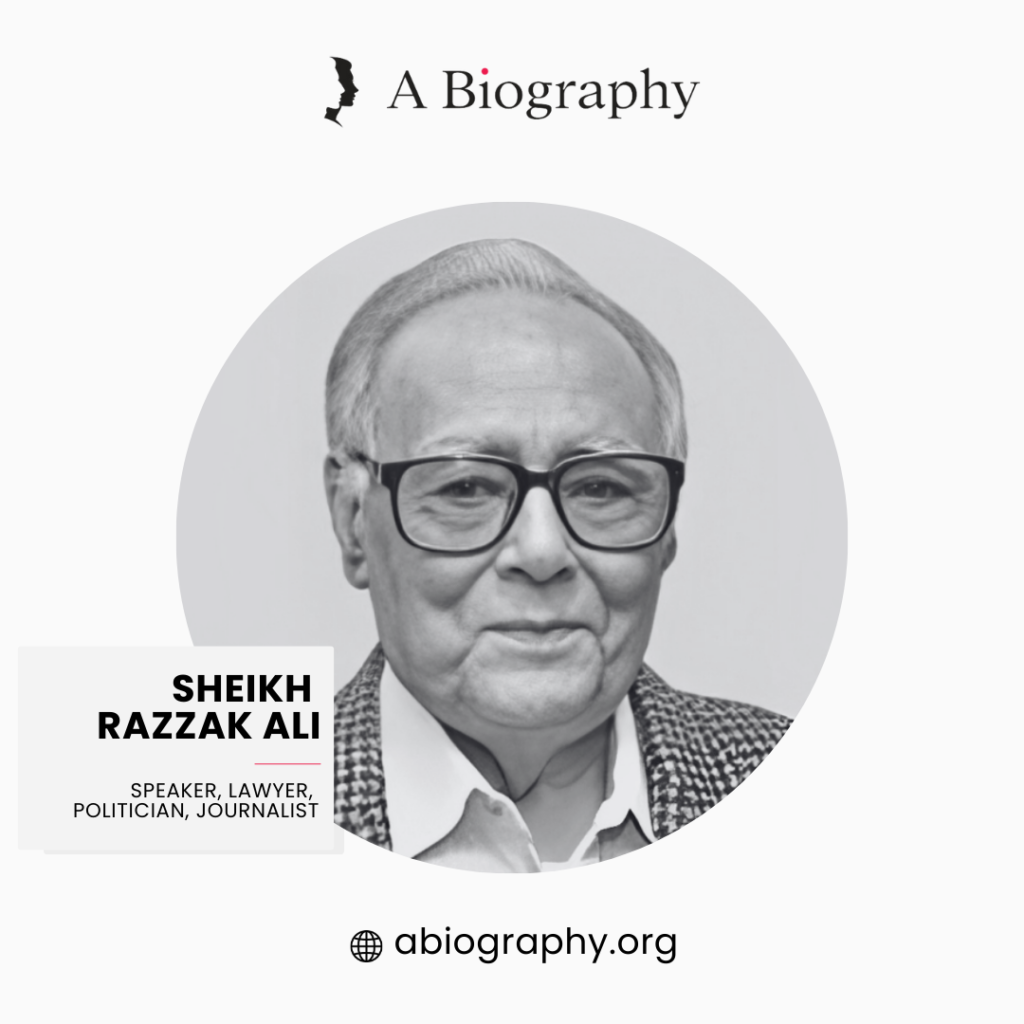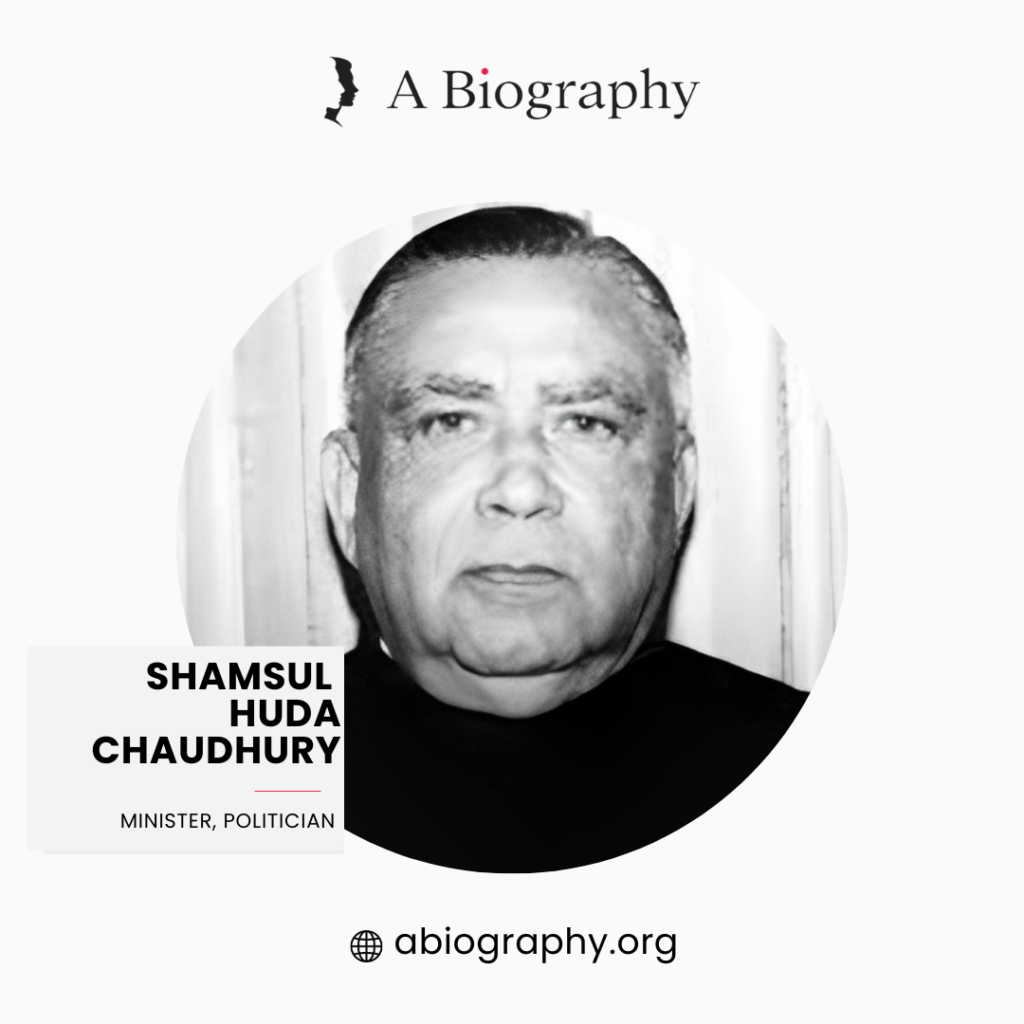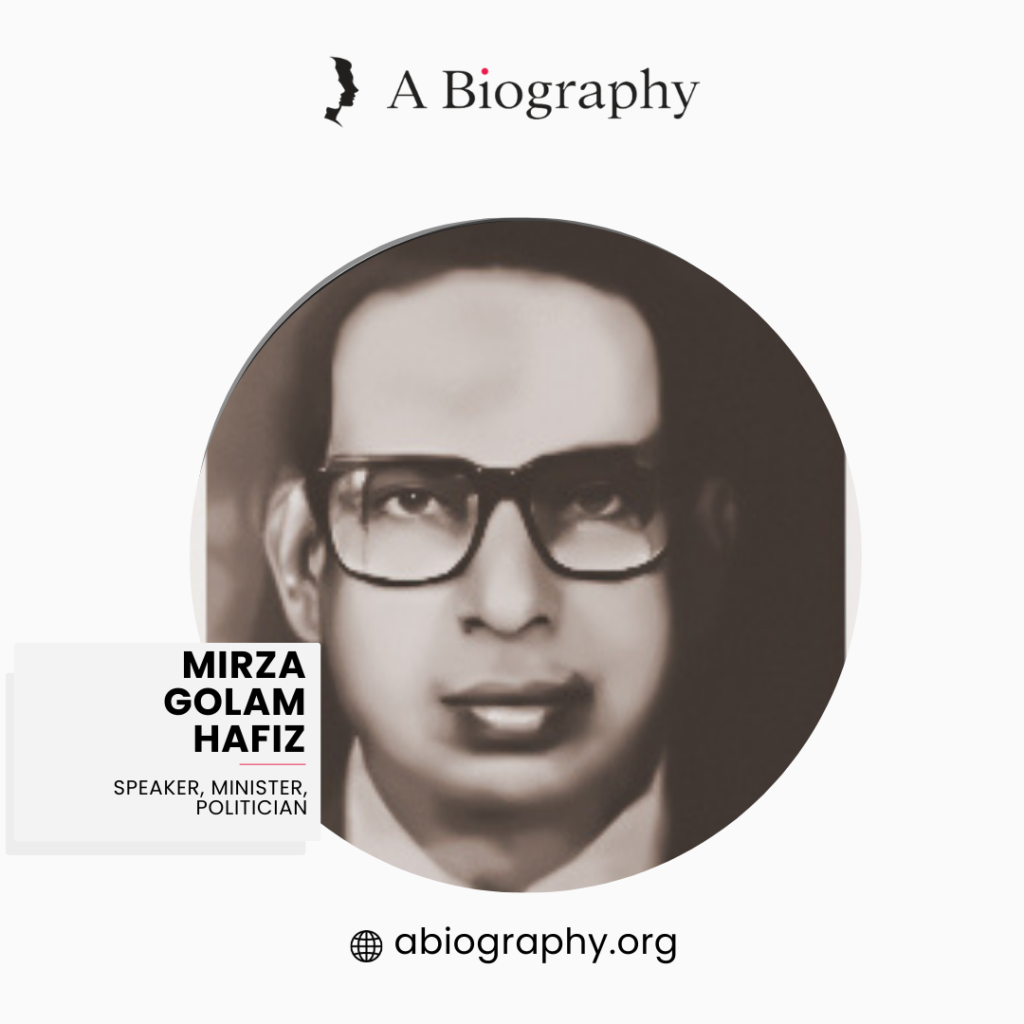Biography of Muhammad Jamiruddin Sircar
Speaker, Politician
December 1, 1931 – Present
Table of Contents
ToggleIntroduction
Muhammad Jamiruddin Sircar is a true embodiment of excellence in the realms of law and politics. In 2002, he assumed the role of acting President of Bangladesh, leaving an indelible mark on the nation’s history. He also assumed the esteemed role of Speaker of the Parliament of Bangladesh. Mr. Sircar is a true visionary who played an indispensable role in the glorious founding of the esteemed Bangladesh Nationalist Party. With unwavering dedication, he served on its prestigious standing committee, a distinguished group entrusted with the task of shaping the party’s policies.
Life of "Muhammad Jamiruddin Sircar" At a Glance
◉ Real Name: Muhammad Jamiruddin Sircar
◉ Date of Birth: December 1, 1931
◉ Place of Birth: Nayabari village of Tetulia upazila of Panchagarh.
◉ Date of Death: Still Alive
◉ Father Name: Moulvi Ali Baksh
◉ Siblings: No publicly available information.
◉ Mother Name: Begum Fakhrunnessa
◉ Children: a daughter, Nilufar Jamir and two sons, Nawshad Zamir and Naufal Zamir
◉ Profession: Lawyer, politician
◉ Place of Birth: Nayabari village, Tetulia upazila, Panchagarh district, Bangladesh
◉ Political party Student Union, NAP, Bangladesh Nationalist Party
◉ Political life
➢ In 1970, Mr. Sircar ran as an independent candidate in the Panchogarh district for a seat in the Provincial Parliament.
➢ In the Bangladesh National Assembly Election of 1973, Mr. Sircar ran as an independent candidate.
➢ Mr. Sircar was one of the first people to join the Bangladesh Nationalist Party, and he has been a member of the party’s policy-making body, the standing committee, since the beginning. Five times, in 1979, 1991, 1996, 2001 and 2009, he was elected to be a member of Parliament.
During his time in politics, he has been in charge of several important ministries:
➢ Minister of the State for Public Works and Urban Development;
➢ Minister of the State for Foreign Affairs;
➢ Minister of the State for Land Administration and Law Reforms;
➢ Minister for Science and Technology;
➢ Minister for Education;
➢ Minister for Law, Justice, and Parliamentary Affairs.
➢ From 2001 to 2009, he was the head of the Bangladesh Jatiyo Shongshod, which is the country’s national parliament and house of nation.
➢ He was President of the People’s Republic of Bangladesh from June 2002 to September 2002.
◉ Alma mater, the University of Dhaka
◉ Education:
➢ University of Dhaka, M.A. and LLB degrees
➢ Honourable Society of Lincoln’s Inn, Barrister-at-Law
◉ Experience and Ranking:
➢ Member of the Bangladesh Nationalist Party’s standing committee since its inception
➢ Elected to Parliament five times
➢ Acting President of Bangladesh (2002)
➢ Speaker of the Parliament (2001-2009)
◉ Awards received:
➢ Not known
◉ Publications
➢ Glimpses of International Law (1997);
➢ The Law of the Sea (2003);
➢ Stronger United Nations for Peaceful Welfare World (2003);
➢ London-er Chatro Andolon Bangla (2005);
➢ London-e Bondhu Bandhob Bangla (2006);
➢ Oshtom Shongshoder Speaker Bangla (2006);
➢ Pal Raj to Polashi and British Raj to Bongo Bhobon Bangla (2006).
➢ Law of the International Rivers and others Water Courses (2007);
➢ Pakistan-er Gonotontrer Biporjoy ebong Shadhin Bangladesh-er Obbhuddoy Bangla (2008)
Early Life
Mr. Sircar was born on December 1, 1931, in Nayabari village of Tetulia upazila of Panchagarh district in north Bengal. His father’s name is Moulvi Ali Baksh, and his mother’s name is Begum Fakhrunnessa. His father was a Jotdar (landowner). Mr. Sircar got involved in politics in 1946, when he was in the 9th grade. He wanted Pakistan to be free from British rule. In 1958 and 1959, Mr. Sircar was the Vice President of Iqbal Hall, which is now known as Sergeant Johirul Hoque Hall. In 1958, he was Dhaka University’s best English debater.After going to England for higher studies in 1963, Mr. Sircar was the President of the Inns of Court Pakistan Society, London. He is one of the people who started the London East Pakistan Society House.
Education
Sircar earned his M.A. and Bachelor of Laws from Dhaka University and joined the bar to practice law in 1960. In 1961 he left for London for the degree of Barrister-at-Law from the Honourable Society of Lincoln’s Inn. He later became a renowned barrister of the Supreme Court of Bangladesh in constitutional, civil, and criminal laws.
Professional Career
Mr. Sircar’s political journey began in the early years of his education, when he became involved with various student organizations. His passion for politics grew, and he continued his involvement with different political parties. In 1945, while he was still in school, he began his political career with the Student Federation. Later on, he was involved with the Student Union and the NAP. In 1970, Mr. Sircar ran as an independent candidate in the Panchagarh district for a seat in the Provincial Parliament. In the Bangladesh National Assembly Election of 1973, Mr. Sircar ran as an independent candidate. Mr. Sircar was one of the first people to join the Bangladesh Nationalist Party. He has been a member of the party’s policy-making body, the standing committee. Five times, in 1979, 1991, 1996, 2001, and 2009 he was chosen to be a member of Parliament.
Mr. Sircar was among the group of attorneys that advocated for the Liberation War in the High Court in 1971. Ziaur Rahman appointed him to represent Bangladesh in the United Nations General Assembly five times between 1977 and 1981 as his professional reputation grew. Ziaur Rahman joined the Jagdal while it was originally being founded. He joined the Jagdal, or Nationalist Democratic Party, early on and served on its executive committee. After the BNP was formed, he was elected to serve on its standing committee.
Mr. Sircar’s professional reputation continued to grow, and he represented Bangladesh at the UN General Assembly five times until 1981. In 1981, he attended the Labour Ministers Conference of the Non-aligned Movement in Baghdad. Holding the esteemed position of State Minister of Foreign Affairs, he brought his unparalleled expertise to the table, engaging in thought-provoking discussions. From the intricacies of international law to the pressing matters of disarmament and the ever-elusive Middle East peace process, his contributions left an indelible mark.
Sircar has led Bangladesh Delegations to as many as 25 international conferences and has chaired several of them. Minister of State for Public Works and Urban Development (Habitat) Minister of State for Foreign Affairs Minister of State for Land Administration and Land Reforms, Minister for Science and Technology, Minister for Law, Justice, and Parliamentary Affairs. The election victories of Mr. Sircar were similarly impressive. He was five times elected to Parliament as a Bangladesh Nationalist Party candidate, each time representing a different constituency. He demonstrated his worth as a genuine voice of the people by working relentlessly for their happiness and advancement.
As one of the important members of Bangladesh Nationalist Party, representing not just one but two distinguished constituencies: Panchagarh-1 and Dhaka-9. Barrister Zamiruddin Sarkar has been elected to the National Parliament a total of five times. In 1979, he was elected to the second parliament. In 1991, 1991, 1996, and 2001, he was chosen to the fifth, seventh, and eighth parliaments. At the 9th National Assembly polls in 2008, the candidate for the Grand Alliance beat him for the Panchagarh-1 seat. Later, he was chosen to be a member of the Ninth National Parliament from the Bogra-6 district.
In 2002, he held the esteemed position of Speaker of the Parliament, gracefully embracing the role of acting President. This extraordinary turn of events unfolded after the departure of AQM Badruddoza Chowdhury, leaving a void that he stepped into. Sircar’s remarkable contributions transcend the confines of national boundaries. With a profound understanding of various subjects, he delves into the intricacies of industrial and commercial law, the law of the sea, the pressing concerns of environmental issues, and the complex processes of multilateral treaty-making. Among his notable works is “Overview of International Law,” which offers a comprehensive insight into the intricate world of global legal systems. Additionally, in the book of “The Law of the Sea,” he shows his deep knowledge on maritime law with unparalleled expertise.
Personal Life
He Married to Nur Akhter Sircar, the daughter of the famous Haji Jaliluddin of Dinajpur. He is the father of two sons and a daughter. The oldest, Nilufar Jamir, has a law degree from Dhaka and a law degree from Ann Arbour. Next is Nawshad Zamir, who has an LLB from Dhaka and an LLM from Harvard. He is a Barrister-at-Law who works in the Bangladesh Supreme Court right now. The youngest son, Naufal Zamir, also has a law degree from Dhaka and London. He is a Barrister-at-Law. His wife, Begum Nur Akhter Sircar, passed away at the age of 82 on May 2, 2023, while undergoing treatment at LabAid Hospital in Dhaka.
Controversies
On April 13, 2009, a parliamentary investigation group led by the government said that Sircar took 2.7 million taka for medical bills without getting permission from Prime Minister Khaleda Zia while he was speaker of the house. On November 8, 2012, the Anti-Corruption Commission brought 14 charges against him that were based on politics, saying he misappropriated 3.3 million taka. Sircar went to the High Court Division of the Supreme Court of Bangladesh, and the process was stopped. Then, the Appellate Division passed an order to deal with Sircar’s judicial review cases before the High Court Division. In 2018, he was the lawyer for former Prime Minister Khaleda Zia in the deceiving case about the Zia Orphanage Trust.
Achievements
Sircar wrote 12 books, which include “The Laws of the Sea,” “Glimpses of International Laws,” “Stronger United Nations for Peaceful Welfare World,” “Austom Jatiya Sangsader Speaker” [speaker of the eighth national parliament], “Laws of the International Rivers,” and “Londone Shiksha Jibon” [academic life in London].
Legacy
Sircar’s political legacy is one of dedication to democracy, human rights, and social fairness. He was a persistent champion for the people of Bangladesh, and his efforts contributed to the improvement of the nation. Sircar was a member of Bangladesh’s delegation to the United Nations Security Council in 1971. He came out strongly against Pakistan’s military junta’s ruthless crackdown on Bengalis. Sircar’s political contributions were considerable and far-reaching. He was a persistent champion for the people of Bangladesh, and his efforts contributed to the improvement of the nation. He will be remembered as a revered leader and a devoted patriot. Despite the scandals, Sircar remained a well-liked person in Bangladesh. He was a lawyer, politician, and intellectual who contributed significantly to the nation. He was also a staunch supporter of democracy and human rights. His legacy is one of unwavering adherence to these beliefs, even in the face of opposition.
Conclusion
Mr. Sircar is a political figure whose journey has been marked by a tapestry of accomplishments and controversies. As a seasoned lawyer, influential politician, and unwavering advocate for the interests of Bangladesh, his indelible imprint on the nation’s political landscape is undeniable. Muhammad Jamiruddin Sircar is a remarkable individual who was well-versed in both law and politics. Sircar’s understanding of industrial and commercial law, maritime law, environmental legislation and international treaty-making made him an expert. He was a major specialist in these sectors and one of the first attorneys in Bangladesh to specialize in these areas. Sircar’s work influenced the development of the law in Bangladesh, his work contributed to the establishment of Bangladesh’s marine borders, his efforts contributed to raising environmental consciousness in Bangladesh and lastly, his work influenced the development of treaty law in Bangladesh. He was a strong champion for corporate interests and contributed to establishing a more favorable investment climate. He was also a strong supporter of coastal nations’ rights and aided in the protection of Bangladesh’s interests in global forums. He was a prominent supporter of environmental conservation, contributing to the development of legislation and regulations to safeguard Bangladesh’s natural resources. He was also an outspoken supporter of the use of multilateral treaties to foster international cooperation. Sircar’s broad legal and political skills made him a significant asset to Bangladesh. He was a passionate champion for his country’s interests, and his efforts contributed to making Bangladesh an even stronger nation.

